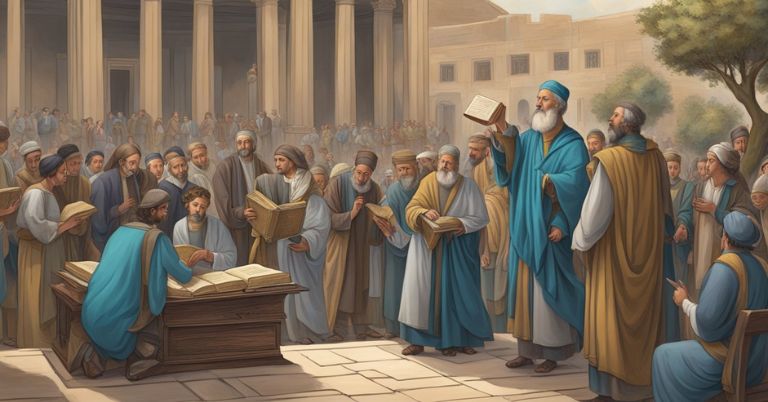The Theological Implications of Enoch’s Exclusion from the Bible

Enoch, a figure shrouded in mystery and significance, holds a unique place in ancient texts, particularly within the context of the Bible and related scriptures. His narrative spans multiple religious traditions, with the most detailed accounts found in the non-canonical Book of Enoch. This article explores the theological implications of Enoch’s exclusion from the biblical canon, examining historical, cultural, and doctrinal perspectives.
Enoch, often referenced briefly in canonical biblical texts such as Genesis, Hebrews, and Jude, stands out for the scarcity of direct mentions and the enigmatic nature of his character. The Book of Enoch, however, provides a comprehensive narrative that expands upon his story, offering insights into angelology, eschatology, and cosmology not found in the Bible.
Enoch in Biblical Context
In canonical scriptures, Enoch appears briefly in genealogies and references to his righteousness and unique relationship with God. Genesis 5:24 states, “And Enoch walked with God: and he was not; for God took him.” Hebrews 11:5 reaffirms Enoch’s faithfulness, emphasizing his exceptional status among humans. Jude 1:14-15 quotes from the Book of Enoch, attributing prophecy to him.
Despite these references, the canonical texts provide scant details about Enoch’s life, leaving much of his story open to interpretation and speculation.
Reasons for Enoch’s Exclusion
The exclusion of the Book of Enoch from the biblical canon stems from various historical and theological factors. Early Jewish and Christian communities made decisions regarding canonical texts based on criteria such as apostolic authorship, consistency with established doctrine, and widespread acceptance ithin the community.
The Book of Enoch, written between the 3rd century BCE and the 1st century CE, did not meet these criteria. Its apocalyptic themes, elaborate angelology, and detailed cosmology presented theological challenges and diverged from the theological focus of canonical texts.
Theological Themes in the Book of Enoch
The Book of Enoch expands upon theological themes touched upon in canonical texts, delving into the nature of angels, the apocalypse, and divine judgment. It introduces concepts such as the Watchers, fallen angels who interact with humanity, and the cosmic implications of their actions. Enoch’s journey through heavenly realms and encounters with celestial beings provide a rich backdrop for exploring eschatological beliefs and the spiritual hierarchy.
Comparing these themes with canonical texts reveals both similarities and contrasts, highlighting how the Book of Enoch influenced later Jewish and Christian theology despite its non-canonical status.
Impact of Enoch’s Exclusion
Enoch’s exclusion from the biblical canon had profound implications for theological development. It reinforced the primacy of canonical texts in shaping Christian and Jewish doctrine, sidelining alternative perspectives and interpretations found in texts like the Book of Enoch.
This decision influenced theological debates concerning angelology, eschatology, and the nature of divine revelation, setting boundaries for acceptable belief and practice within religious communities.
Modern Interpretations and Relevance
In modern times, the Book of Enoch has garnered renewed interest among scholars, theologians, and curious readers seeking to understand its theological insights and historical context. Its themes resonate with contemporary discussions on spirituality, prophecy, and the interplay between divine and human realms.
Theological interpretations of Enoch’s story continue to evolve, offering fresh perspectives on ancient texts and their relevance to modern theological discourse. Scholars explore its potential influence on early Christian thought and its legacy in shaping diverse religious traditions.
Conclusion
Enoch’s exclusion from the biblical canon reflects the complex interplay of historical, theological, and cultural factors shaping religious texts. The theological implications of his narrative, as presented in the Book of Enoch, continue to provoke thought and debate among scholars and believers alike. Whether viewed as a cautionary tale, a visionary revelation, or a theological curiosity, Enoch’s story invites exploration into the rich tapestry of ancient religious literature and its enduring impact on faith and belief systems.
In summary, while Enoch remains on the periphery of biblical canon, his influence persists through alternative scriptures and ongoing theological inquiry, challenging and enriching our understanding of divine revelation and human spirituality.




